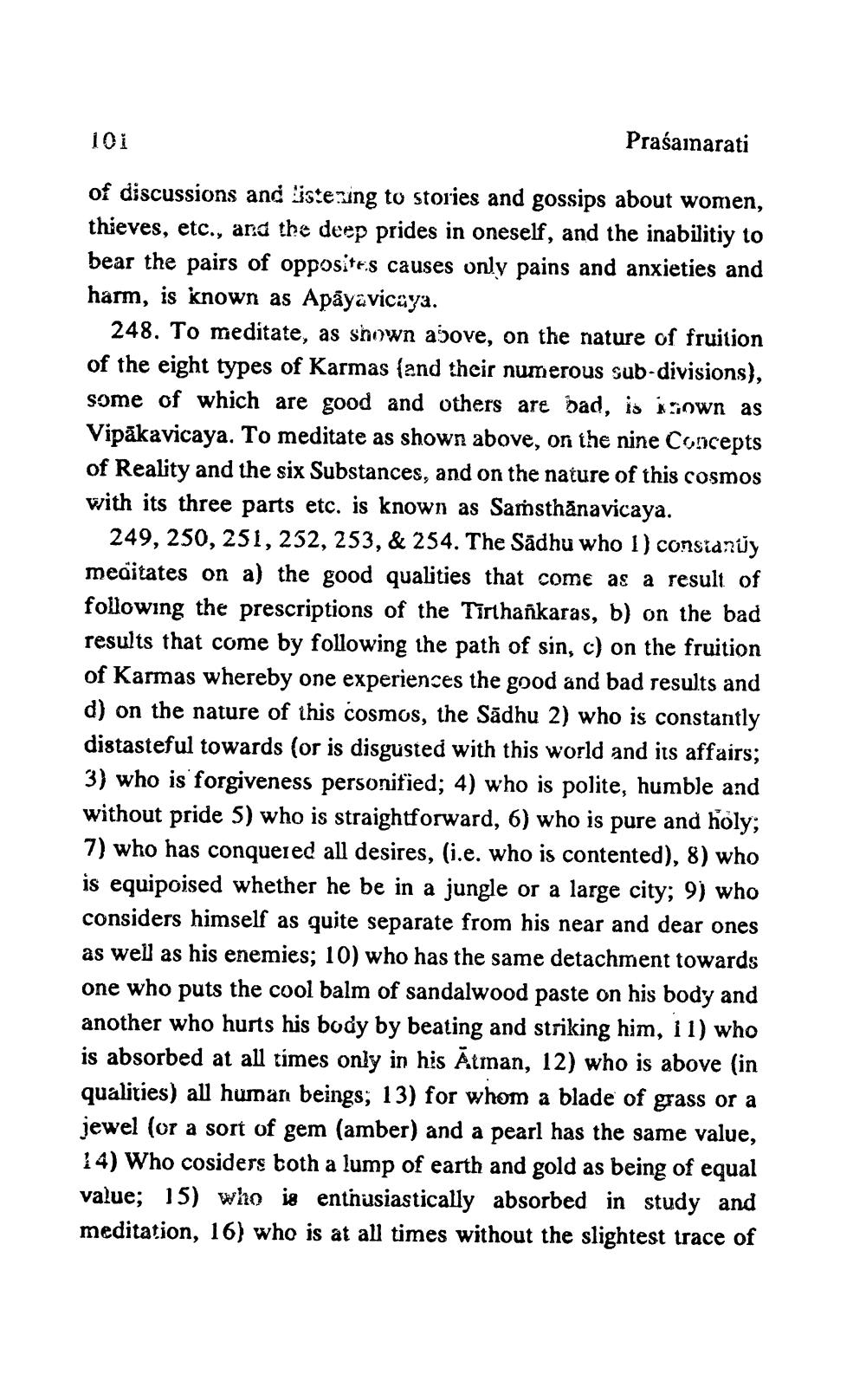________________
101
Praśamarati
of discussions and listening to stories and gossips about women, thieves, etc., and the deep prides in oneself, and the inabilitiy to bear the pairs of opposites causes only pains and anxieties and harm, is known as Apayavicaya.
248. To meditate, as shown above, on the nature of fruition of the eight types of Karmas (and their numerous sub-divisions), some of which are good and others are bad, is isown as Vipākavicaya. To meditate as shown above, on the nine Concepts of Reality and the six Substances, and on the nature of this cosmos with its three parts etc. is known as Samsthanavicaya.
249, 250, 251, 252, 253, & 254. The Sadhu who 1) consianty meditates on a) the good qualities that come as a result of following the prescriptions of the Tirthañkaras, b) on the bad results that come by following the path of sin, c) on the fruition of Karmas whereby one experiences the good and bad results and d) on the nature of this cosmos, the Sadhu 2) who is constantly distasteful towards (or is disgusted with this world and its affairs; 3) who is forgiveness personified; 4) who is polite, humble and without pride 5) who is straightforward, 6) who is pure and holy; 7) who has conquered all desires, (i.e. who is contented), 8) who is equipoised whether he be in a jungle or a large city; 9) who considers himself as quite separate from his near and dear ones as well as his enemies; 10) who has the same detachment towards one who puts the cool balm of sandalwood paste on his body and another who hurts his body by beating and striking him, il) who is absorbed at all times only in his Ātman, 12) who is above (in qualities) all human beings; 13) for whom a blade of grass or a jewel (or a sort of gem (amber) and a pearl has the same value, 14) Who cosiders toth a lump of earth and gold as being of equal value; 15) who is enthusiastically absorbed in study and meditation, 16) who is at all times without the slightest trace of




